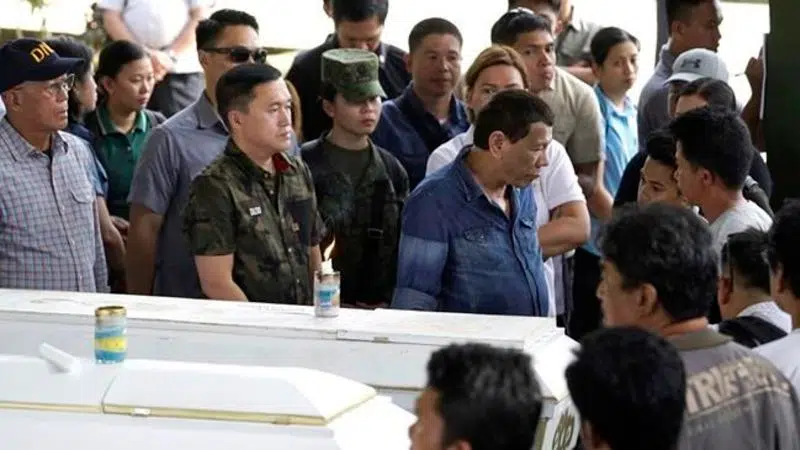
Duterte sees bombed church, tells army to crush Abu Sayyaf
MANILA, Philippines — President Rodrigo Duterte and his top security officials on Monday visited a Catholic cathedral in the southern Philippines where suspected Islamic militants set off bombs that killed 20 people and wounded more than 100.
The first blast sent people, some of them wounded, fleeing out the church’s main door. Army troops and police were rushing inside when the second bomb exploded a minute later. The explosions scattered wooden pews inside the main hall, blasted out window glass panels and hurled human remains and debris across a town square fronting the Cathedral of Our Lady of Mount Carmel, witnesses said.
The attack occurred in the Sulu provincial capital on Jolo island, where Abu Sayyaf militants have carried out years of bombings, kidnappings and beheadings and have aligned themselves with the Islamic State group, which claimed responsibility for the attack.


